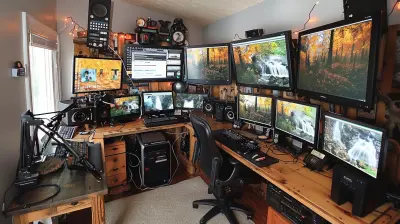Exploring Morality and Choice in Role-Playing Games
1 August 2025
Ever found yourself hesitating before choosing between saving a village or chasing a villain in a role-playing game? Yeah, same here. Role-playing games (RPGs) aren't just about slaying dragons or hoarding loot anymore—they're rich, immersive worlds where your choices have weight, and your morality is constantly tested.
In this article, we’re diving deep into how morality and choice work in RPGs, why they matter so much, and how they shape our gaming experiences. So grab your sword—or your staff—and let’s venture into the gray areas of role-playing morality.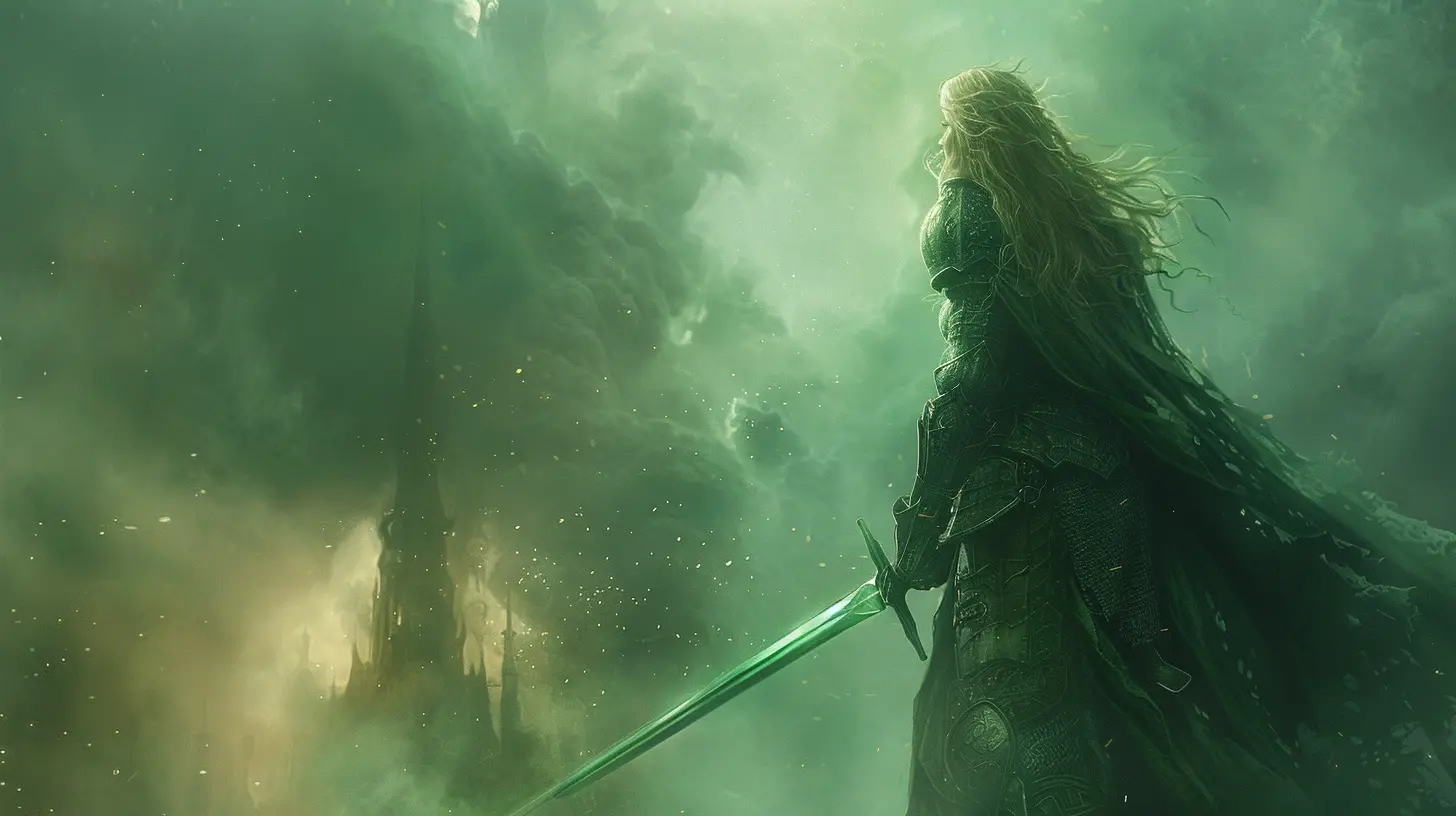
The Core of RPGs: Choice and Agency
When you think of RPGs, what comes to mind? Customizable characters, expansive worlds, and epic narratives, right? But the real magic of RPGs lies in the choices you make. Unlike many other genres, RPGs hand you the reins and ask, "What kind of hero (or villain) do you want to be?"These choices range from simple dialogue responses to massive, story-altering decisions. Each one chips away or adds to the moral compass your character follows.
Think of it like a digital version of a “choose your own adventure” book—but with way more dragons.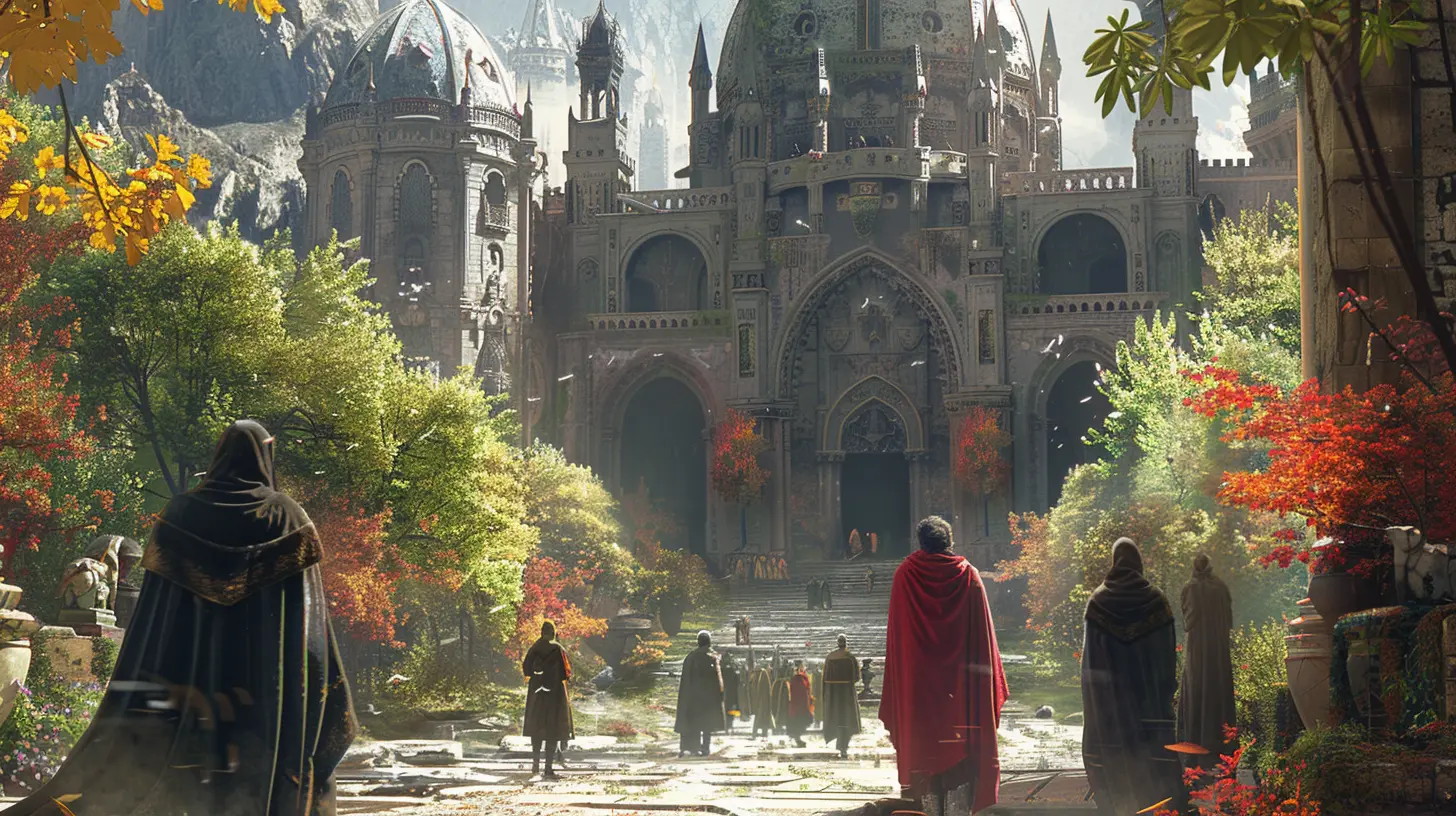
Morality Systems: Black and White or Shades of Gray?
Many RPGs have systems that track your moral actions in the game. You’ve probably seen these before—labels like "good," "evil," or "neutral" often pop up based on your decisions. Games like Mass Effect, Fable, and Knights of the Old Republic are well-known for these built-in morality meters.The Binary Morality Problem
Some games go the old-school route and treat morality like a light switch—you're either the messiah or a total maniac. While this clear-cut system makes for straightforward storytelling, it often oversimplifies complex decisions.Let’s be real—life isn’t black and white, and neither are tough moral questions. Should you steal to feed a starving child? Should you lie to protect someone from harm? These aren't easily boxed into "good" or "bad."
Moral Ambiguity: Where Things Get Interesting
That’s where modern RPGs get fun. Games like The Witcher 3 and Disco Elysium ditch the “good vs. evil” narrative and dive into the murky middle. You’ll often make choices without knowing the full consequences until much later.This ambiguity forces you, the player, to weigh pros and cons, just like in real life. You’re no longer a hero or villain; you’re just... human.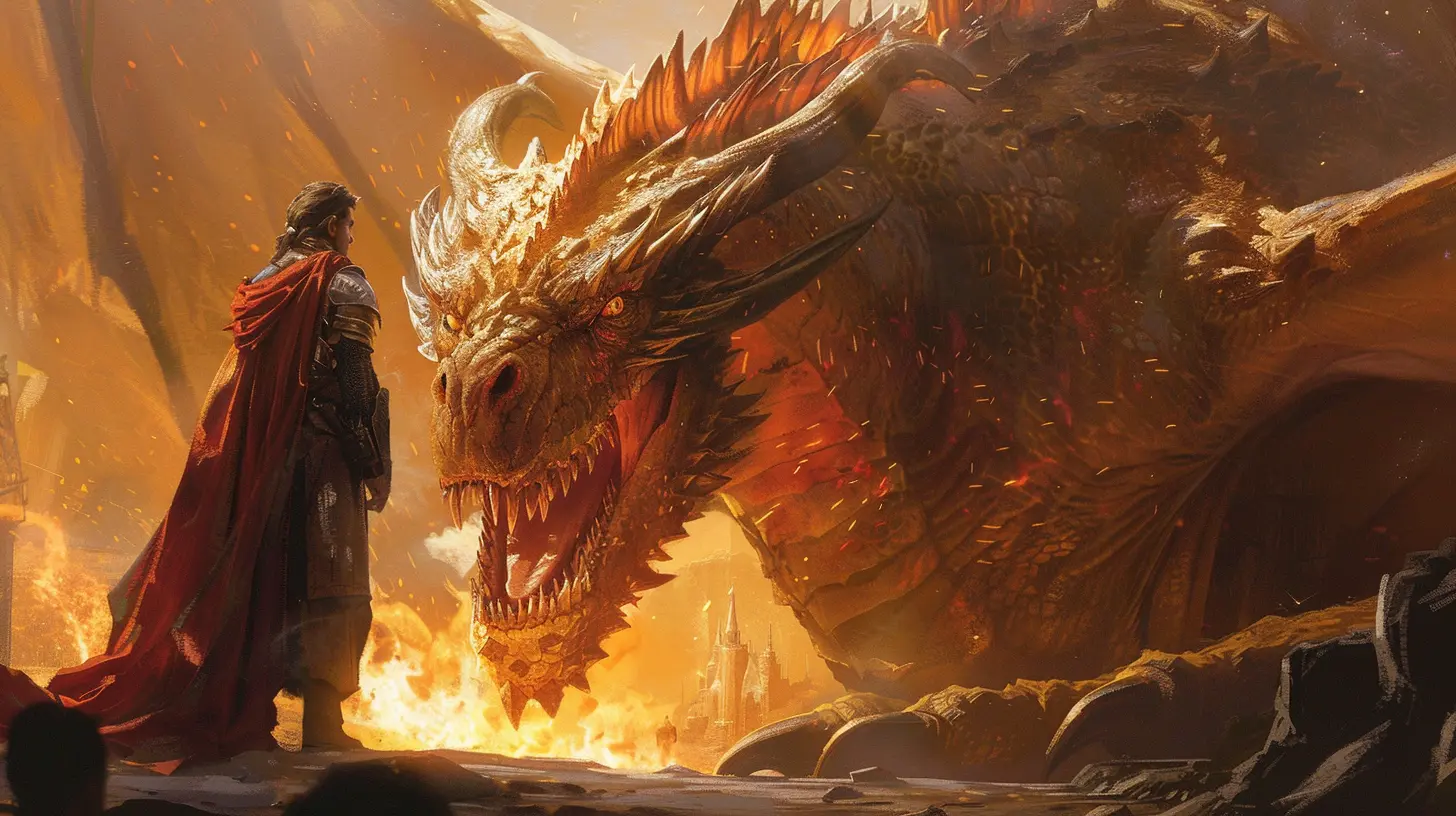
Player Reflection: What Do Your Choices Say About You?
Ever made a choice in a game that made you pause? Maybe even feel a bit guilty? That’s powerful stuff.Games with moral choice mechanics create a mirror for players. They make us think about what we value, who we want to be—even who we really are. It’s like virtual therapy, and yeah, sometimes it hits a little too close to home.
The Power of Empathy
When RPGs place you in someone else’s shoes—like a refugee, a desperate father, or a leader under pressure—they stretch our empathy muscles. These moments make us feel things we usually reserve for real-life situations.You may start to think twice before making impulsive decisions, even if it’s "just a game.” And if you’ve ever spent 10 minutes staring at a dialogue option, you know exactly what I mean.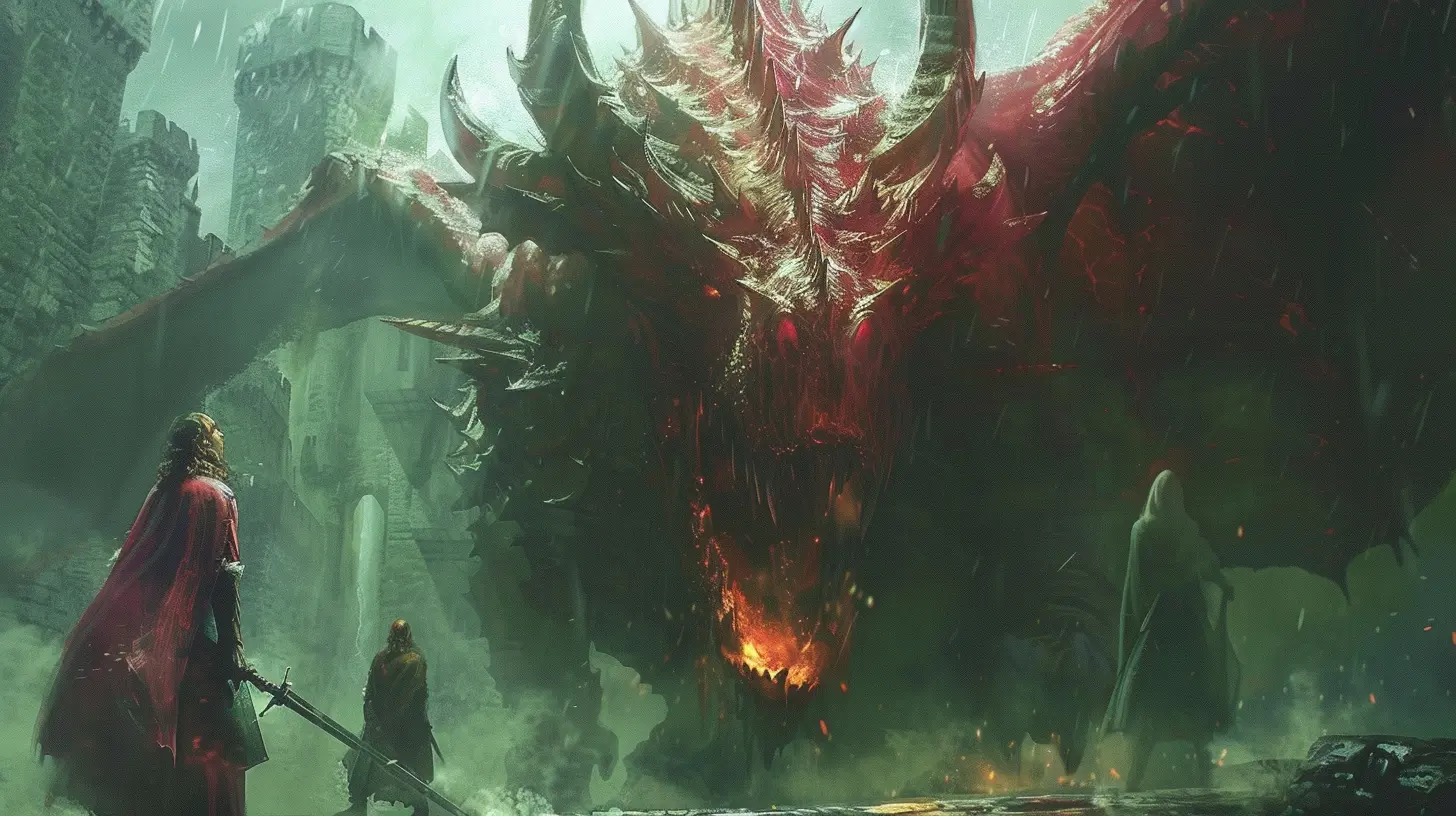
Choice and Consequence: Living with the Fallout
Let’s talk consequences. Good RPGs don’t just let you make choices—they make you live with them.Short-Term vs. Long-Term Effects
Some decisions give you instant feedback: Save the kid, and the town praises you. Burn the village, and you’re banned from trading.But the best games go deeper. That choice you made five hours ago? It comes back to haunt you in the final act. Maybe the NPC you helped earlier becomes a crucial ally. Or maybe the person you betrayed starts working with the final boss.
These ripple effects create a living world that responds to you. That immersion? That’s what keeps us hooked.
Morality in Party-Based RPGs: Collateral Damage & Group Dynamics
It’s one thing to make choices when you're the lone wolf. But what happens when you’re leading a group of diverse characters with their own beliefs? Suddenly, every decision can cause a stir.Companions Judge You (and That Stings)
In games like Dragon Age or Baldur’s Gate 3, your companions often react to your moral choices. Support one cause, and one might leave the party. Take a more ruthless approach, and another might start to admire you (in a twisted way).It's like managing a squad of coworkers with moral compasses that swing in different directions. Keeping the peace? That's a game in itself.
Why Morality and Choice Make Games Matter
You might be wondering—why all this fuss about moral choices in video games? It's simple: meaningful choices make for unforgettable experiences.Unlike movies or books, games let you participate in the story. You’re not just watching a hero struggle—you’re living through those dilemmas. And because of that, the emotional weight hits harder.
Building Personal Narratives
No two players have the same story. That’s what gives RPGs replay value and emotional depth. Your version of Fallout: New Vegas or Cyberpunk 2077 might be wildly different from mine—and that’s beautiful.You’re crafting your own myth, with your own morals.
When Choice Isn’t Really a Choice
Now, let’s dial it back for a second. Some games pretend to give you choices, but no matter what you pick, the outcome barely changes. That’s what we call “illusion of choice,” and it’s a bit of a buzzkill.Beating the System
Gamers are smart. We start to notice when choices don’t matter. And when that happens, the magic breaks. What's the point of agonizing over a decision if it doesn't shape the world or story?Developers need to strike a balance between branching storylines and narrative cohesion. It’s not easy, but the best games—like Divinity: Original Sin 2 or the Undertale—nail it brilliantly.
Games That Nailed Morality and Choice
Let’s give a shoutout to a few RPGs that get this whole morality thing right:1. The Witcher 3: Wild Hunt
Complex characters, gray morality, and choices where no one really "wins." Every decision feels weighty and personal. Geralt might be a monster hunter, but his real battles are moral ones.2. Mass Effect Trilogy
Paragon or Renegade? Your choices shape not only your story but how others see you—and who survives.3. Undertale
A pixelated indie game that flipped the script. Killing or sparing monsters completely changes the story—and your relationship with the game itself.4. Disco Elysium
No combat, just brains and choices. It’s raw, political, philosophical, and deeply introspective. Every conversation feels like a moral examination.The Future of Morality in RPGs
As tech gets better and storytelling grows more nuanced, we’re likely to see even deeper, more reactive morality systems. Imagine NPCs remembering your actions like real people or moral dilemmas with no clear resolution.We’re heading toward more psychologically driven narratives. And maybe one day, games will understand our behavior so well, they’ll predict our next choice.
Creepy? Maybe. But fascinating? Absolutely.
Wrapping It Up: You Are Your Choices
At the heart of every great RPG lies a simple truth: the choices you make shape the story. Not just the plot, but the emotional journey too.Morality in RPGs isn’t just a game mechanic—it’s a way of making virtual worlds feel real, of forcing us to dig deep and ask, “What kind of person do I want to be?”
So next time you're deciding whether to save the kingdom or rule it with an iron fist, remember—games aren't just about what you do. They're about who you become.
all images in this post were generated using AI tools
Category:
Rpg GamesAuthor:

Leif Coleman
Discussion
rate this article
2 comments
Izaak Hernandez
Insightful article! The exploration of morality in RPGs truly enhances player engagement.
January 22, 2026 at 4:36 AM
Tia McAdams
This article brilliantly examines how player choices in RPGs shape moral dilemmas, emphasizing the impact on storytelling and character development. A must-read for avid gamers!
August 8, 2025 at 4:39 AM

Leif Coleman
Thank you for your kind words! I'm glad you found the exploration of morality and choice in RPGs resonant. Your support means a lot!
